#Lima Peru
Explore tagged Tumblr posts
Photo
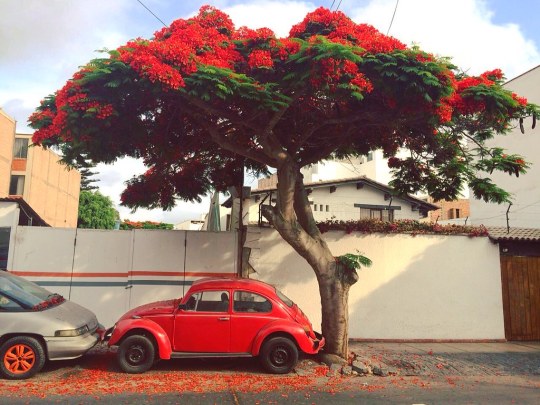
momento almodovar by bereb!
#vw#volkswagen#red#rouge#rojo#iphonegraphy#lima#peru#peruvian#landscape#urban#escape#flores#flowers#amazing#beauty#hermoso#vintage#cute#photography#streetstyle#streetview#cityscape#cityview#car#tree#arbol#arvore#summer#vibes
54 notes
·
View notes
Text

The library. La biblioteca en Barranco.
1 note
·
View note
Text






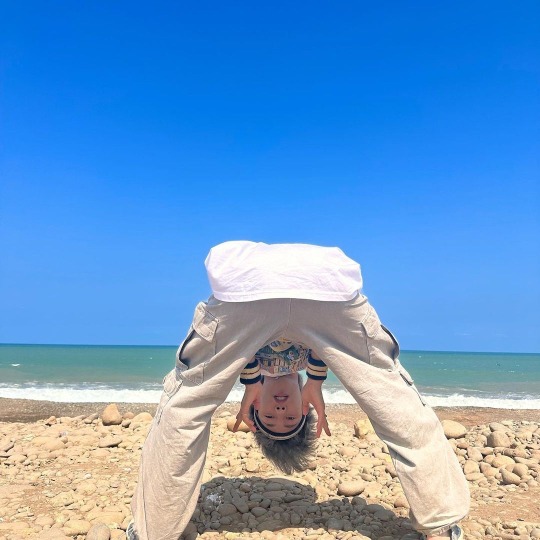
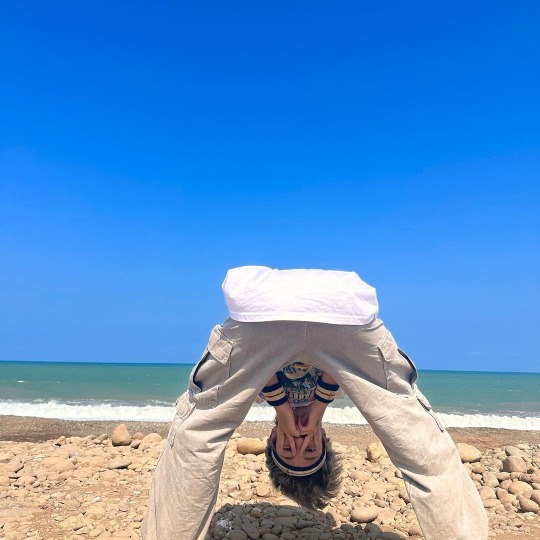


my sunshines ☼.⋆。𖦹 °˖
#he really loves the sea#he saw some dolphins too he's too cute#both are the loml ahhakskskkk#og loml and the light of my life#huang renjun#nct dream#renjun#jaemin#renmin#jaemren#230709 lima peru#renstagram
91 notes
·
View notes
Text

Street scene in the Miraflores district of Lima, Peru
Peruvian vintage postcard
#postal#street#scene#peruvian#historic#ansichtskarte#sepia#vintage#tarjeta#miraflores#briefkaart#photo#district#lima#postkaart#peru#ephemera#postcard#postkarte#photography#carte postale
8 notes
·
View notes
Text

Julio, (2024). Barrios Altos.
Cambio de ruta en automático desde 1998, hacia la esquina del Jr. Huánuco con Jr. Áncash
1 note
·
View note
Text
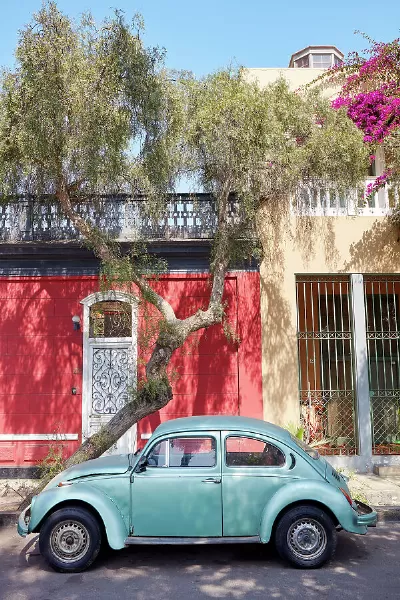
A vintage Volkswagen beetle car in front of a colonial house in Barranco, Lima, Peru. Lima is also known as the "City of the Kings"and was declared UNESCO World Heritage site in 1988
#volkswagen#lima#peru#barranco#vintage#car#cars#vintage cars#vintage car#south america#america latina#peruvian#latin america#america del sur#sur america#architecture#colonial house#beetle car
24 notes
·
View notes
Text
Por creerme sabio, termine aprendiendo de una mala manera, lastimando a quien no debí hacer.
#venezuela#caracas#citas#textos#frases#amor#palabras#letras#español#desamor#lo siento#Amiga#Amigos#hermanos#Hermana#lima#perú#lima peru#Carta de amor#cartas de amor#te quiero#amor de verdad#Amor de hermanos#citas de amor#citas de desamor#citas de la vida#citas de libros#Citas de despecho#despecho#Despechado
32 notes
·
View notes
Text

My independence day on my mothers side YAHOOO 🇵🇪‼️
23 notes
·
View notes
Text
New video of Shakira leaving her hotel today in Lima, Peru. (Feb 17, 2025)
#shakira#shakira mebarak#celebs#celebrities#lima peru#lmynl world tour#new video#video#february 2025#tumblr#daily post
7 notes
·
View notes
Text
"En Tu Piel" by Lima, Peru-based post-punk goth act Something Obscura off of 2024 album Dark Ages
#gothgoth#post punk#gothic#nu goth#Something Obscura#En Tu Piel#music#Peruvian#South American#2024#Lima Peru#Peruvian goth#Peruvian post punk#Bandcamp
6 notes
·
View notes
Text
via: links3716 / photo by: zachary gray
6 notes
·
View notes
Text
HELLOO
If you speak Spanish and/or happen to be in Peru from now to December, don’t miss out on La Mariscala! A Peruvian musical made by a friend of mine. It’s rlly similar to Hamilton, except it tells the story of a woman who became president in post-independence Peru.
Here’s the soundtrack! Pls give it a listen if you can!
#musicals#peru#lima peru#lima#history#spanish#hispanics#latino#La Mariscala#Spotify#español#musicales#teatro peruano#peruano#theatre
8 notes
·
View notes
Text
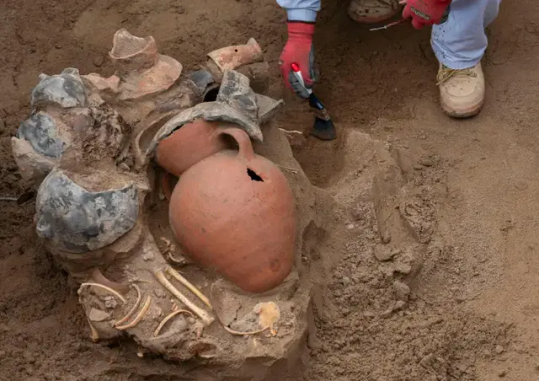
Eight Mummies and Pre-Inca Artifacts Discovered in Peru
Peruvian gas workers made an astonishing discovery beneath the ancient streets of Lima this week — uncovering eight mummies and a number of Pre-Inca artifacts.
“We are recovering those leaves of the lost history of Lima that is just hidden under the tracks and streets,” said Jesus Bahamonde, an archaeologist with Calidda, the company that distributes natural gas to the 10 million residents of Peru’s capital city.
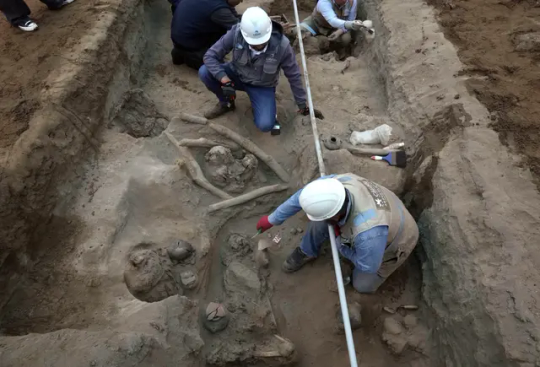
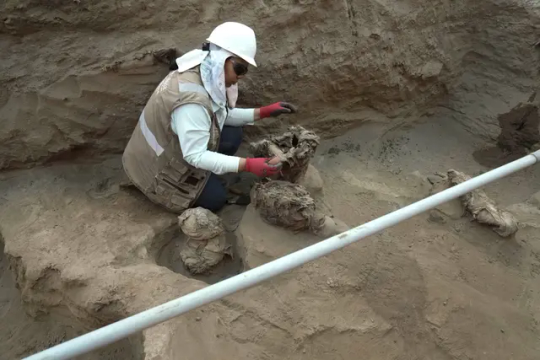
Since the company began expanding its gas line system nearly two decades ago, they’ve racked up more than 1,900 archeological finds — including mummies, pottery, and textiles, Bahamonde said.
In the most recent discovery, the eight mummified males were found bundled up in the trench, wrapped in cotton cloth and tied with ropes braided from vines. Workers found the bodies about a foot below the ground.
Archeologists with the gas company believe the men belonged to a pre-Inca culture called Ichma, which formed around A.D. 1100 and flourished in the valleys around Lima until it was absorbed into the Inca Empire in the late 15th century.
Roberto Quispe, an archeologist who worked in the trench, sad the mummified bodies are likely two adults and six minors.
Lima, now an urban economic hub, has been occupied by humans for more than 10,000 years, from the Pre-Incan cultures to the Spanish conquistadors who claimed the land in the 16th century.
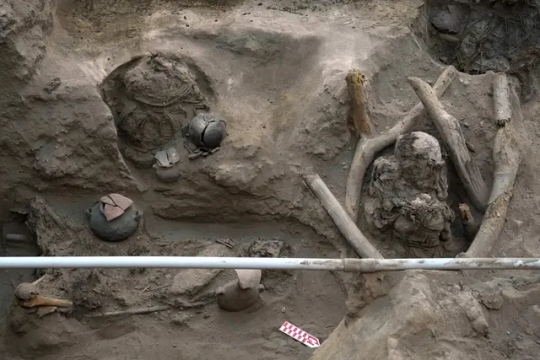
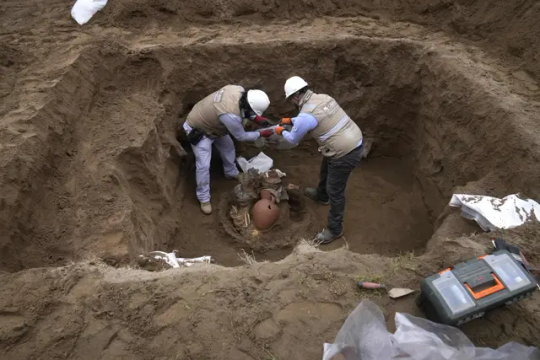
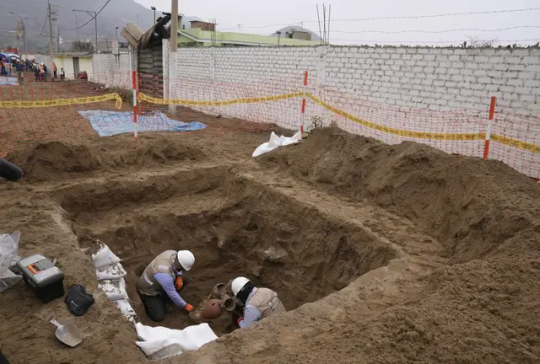
Many archeological finds have proven to be from more recent times.
In 2018, Quispe and other archaeologists working in the La Flor neighborhood found wooden coffins holding three Chinese immigrants buried in the 19th century.
The bodies were found alongside opium pipes, hand-rolled cigarettes, shoes, Chinese playing cards, a Peruvian silver coin minted in 1898 and a certificate of completion of employment contract, written and Spanish and dated 1875.
The eight mummies were found amidst braised chicken restaurants and a road that leads to Peru’s only nuclear power station.
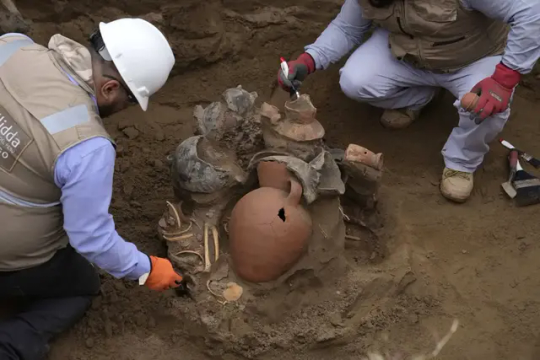
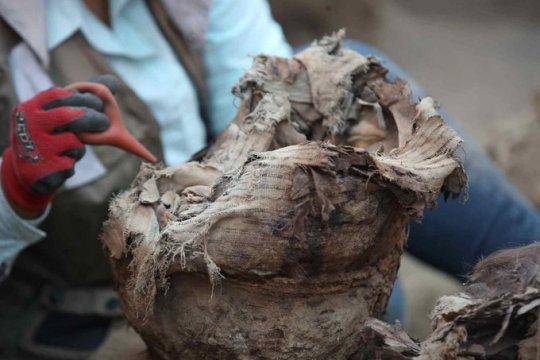

“When the Spaniards arrived in the 16th century they found an entire population living in the three valleys that today occupy Lima … what we have is a kind of historical continuation,” Bahamonde said.
Most of the archaeological sites uncovered by Calidda have been burial sites discovered on flat ground, Bahamonde said.
Aso scattered throughout the urbanized city are more than 400 larger archeological sites, known in the indigenous Quechua language as “huacas,” which are sacred adobe constructions typically found on hilltops.
By Patrick Reilly.

#Eight Mummies and Pre-Inca Artifacts Discovered in Peru#Lima Peru#ancient grave#ancient tomb#ancient artifacts#archeology#archeolgst#history#history news#ancient history#ancient culture#ancient civilizations#Inca history#Ichma history
56 notes
·
View notes




